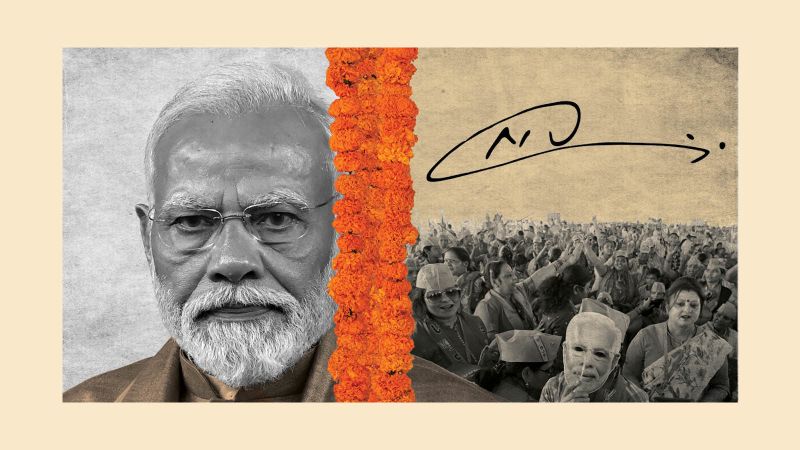
Narendra Modi: India’s popular but controversial leader seeking a transformative third term
CNN
Indian Prime Minister Narendra Modi’s reelection slogan makes a simple promise: “good days are coming.” But his opponents argue he has done little to soothe India’s deep divisions.
Indian Prime Minister Narendra Modi once famously made a simple election promise: “good days are coming”. To his adoring supporters, it’s a vision of a future now finally within reach should Modi and his right-wing Hindu nationalist Bharatiya Janata Party (BJP) secure an emphatic and rare third consecutive term at this month’s nationwide election. At his rallies, tens of thousands gather in near frenzied religious devotion in support of a man whose policies they say have transformed the lives of ordinary Indians – and helped enshrine the nascent promise of social mobility in a country still riven by caste divisions. Modi projects himself as an outsider from humble origins. Born as the son of a tea seller in a small town in Gujarat, he does not fit neatly within the often privately educated, resolutely metropolitan, English-speaking template set by many previous Indian leaders. The 74-year-old is unmarried, has no children, and seemingly shuns expensive material possessions in favor of a simple, ascetic lifestyle. And though little is shared about Modi the man – his private life is assiduously guarded by a formidable public relations team – his persona resonates with many.





















 Run 3 Space | Play Space Running Game
Run 3 Space | Play Space Running Game Traffic Jam 3D | Online Racing Game
Traffic Jam 3D | Online Racing Game Duck Hunt | Play Old Classic Game
Duck Hunt | Play Old Classic Game











